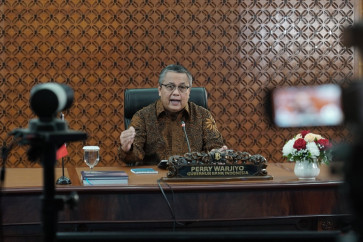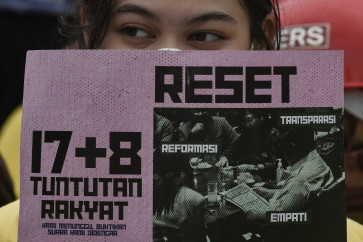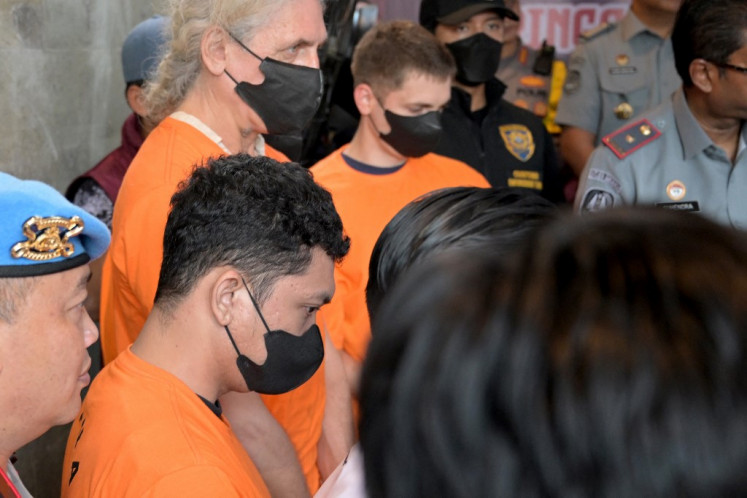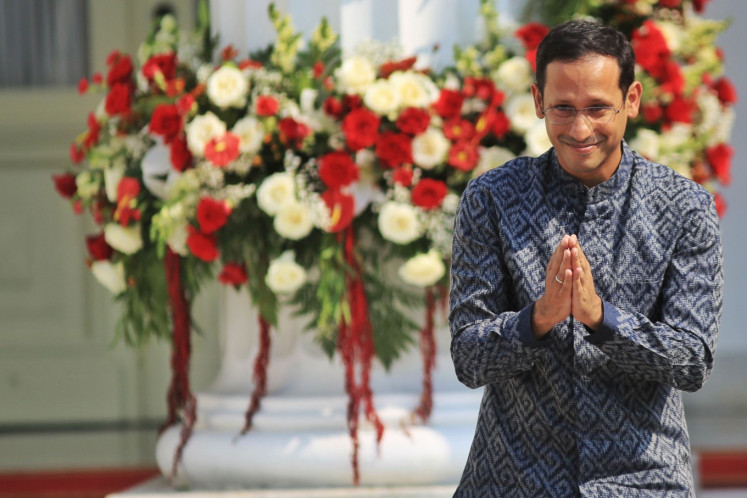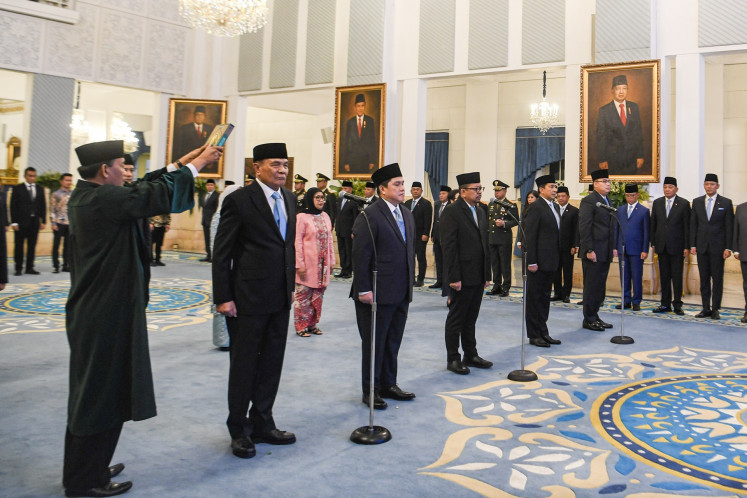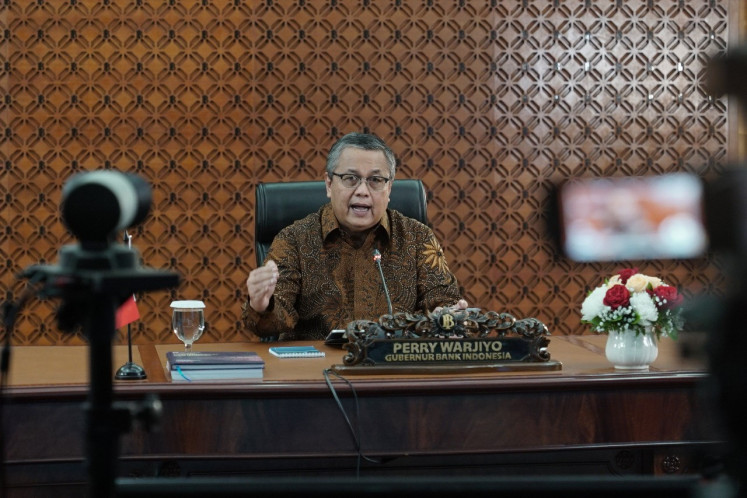Popular Reads
Top Results
Can't find what you're looking for?
View all search resultsPopular Reads
Top Results
Can't find what you're looking for?
View all search results80 years since World War II: Lessons for modern security
In 2019, the world commemorates 80 years since the outbreak of World War II that killed tens of millions of people. This terrible ordeal involved 72 states, or 80 percent of the world’s population, destroyed thousands of cities and villages and caused immeasurable suffering for hundreds of millions of people.
Change text size
Gift Premium Articles
to Anyone
I
n 2019, the world commemorates 80 years since the outbreak of World War II that killed tens of millions of people. This terrible ordeal involved 72 states, or 80 percent of the world’s population, destroyed thousands of cities and villages and caused immeasurable suffering for hundreds of millions of people. This was the only conflict in which nuclear weapons were used.
One main outcome of WW II was the creation of the United Nations, mainly aimed to prevent future world wars. It also triggered the collapse of colonial empires, including in Southeast Asia.
We must never forget the historical lessons of WW II, which are very relevant today.
Unfortunately, we are witnessing increasing attempts to hide the truth about those responsible for unleashing that war, to shift blame from the true aggressors to the victims.
Some countries abuse commemorative dates not to pay tribute to history but to cover their own role in fueling the global conflict. Actions of some states are increasingly reminiscent of mistakes leading to WW II. Thus we should take a sober look at the causes leading to the collapse of the world order in 1939.
After WW I, the Treaty of Versailles created a new system of international relations, which anchored Germany’s unequal position. That system could not support the fragile security architecture in Europe, contributing to the rise of the Nazis alongside revanchist sentiments in Germany. Many in the West considered Hitler, with his nationalist, extremist slogans, as a savior of the capitalist system from Soviet influence and revolution. By the end of the 1930s, certain European countries chose to “appease” the Hitler regime, while playing a double game aimed at directing Germany’s aggression to the East.
The most striking example of such a policy was the Munich Agreement, known also as the Munich Collusion, when Britain and France in September 1938 agreed that Hitler could eventually tear to pieces all of Czechoslovakia. Poland’s role was very illustrative.
Initially it became a deliberate accomplice in Czechoslovakia’s partition, yet later became the first victim of the Nazi military machine. In March 1938, neither London nor Paris or Washington objected to Austria’s annexation by Nazi Germany.
After Hitler came to power, the Soviet Union (USSR) remained the only state that restrained Germany’s aggressive plans and called for the united efforts of European countries in maintaining peace.
After Czechoslovakia’s occupation, the Soviet leadership strived to prevent a major war. Already at the end of the 1930s, Moscow understood the need to form a collective security system and urged other powers to do so. Until the second half of August 1939, the Soviet Union persistently invited Britain and France to come to an agreement on mutual immediate military assistance in case of aggression. However, they not only connived with the Nazi’s predatory policy but also sabotaged Soviet proposals to build an anti-Hitler alliance. Obviously, the West preferred to shift the burden of the impending war entirely onto the shoulders of the Soviet Union’s Red Army.
Meanwhile, Britain, France and the United States tried to limit the Soviet Union’s access to the latest military technologies. The US announced a “moral embargo” on the sale of aircraft and raw materials to the Soviet Union. While Germany, declaring nationalism at the heart of its political course and planning elimination of the Untermenschen (“subhumans”), possessed a powerful industry, including factories in Austria and Czechoslovakia, to build up advanced military capabilities.
Having exhausted all possibilities of creating a collective security system in Europe and suspecting the true intentions of Western countries, the Soviet Union became the last European state to conclude a nonaggression treaty with Germany in August 1939. Similar agreements included those between Germany and France, Britain and Denmark. Hitler tore up the identical agreement with Poland in March 1939.
Realizing the inevitability of war with Germany while Western countries stood by, the Soviet Union sought to modernize its army.
Remarkably, following Germany’s aggression against Poland on Sept. 1, 1939, considered the beginning of WW II, or, as we say in Russia, the “Strange War”, until May 10, 1940, neither France nor Britain conducted serious military operations against Germany. The US even declared neutrality. All this allowed Hitler to increase his military power and continue his aggression.
Therefore, international relations in Europe were rooted in attempts to prioritize narrow ambitions of individual states above collective interests of countries and nations.
Diplomacy, the culture of negotiations and compromises, is again being replaced by dictates [...] and sometimes outright blackmail
Instead of responding to Moscow’s proposal for a collective security system, which would ensure all states’ sovereignty, the Western powers carried on covert operations, ultimately targeting German aggression against the Soviet Union. States broke international agreements, renouncing obligations without due reaction from the international community — ultimately leading to global catastrophe.
The Soviet Union paid a high price for victory in WW II, with 27 million Soviets killed. It was the main contributor to the world’s victory over fascism, which broke the Third Reich’s “spine”, liberated Europe and saved European democracy from destruction.
The war’s lessons enabled a new, more effective system of international relations based on dialogue, equality, noninterference in domestic affairs, mutual respect and the search for a UN-led compromise and collective responsibility.
So, instead of trying to rewrite history, some countries should think about avoiding past mistakes. The world once paid its price for artificial dividing lines, labeling of “enemies”, placing selfish interests over collective well-being and prosperity.
Today the world is increasingly dismantling all key elements of the decades-old world order, including the global strategic arms control system. In 2002, the US withdrew from the 1972 Anti-Ballistic Missiles Treaty, and recently from the 1987 Intermediate-Range Nuclear Forces Treaty. The next step is the declared deployment of such weapons in the Asia Pacific, inevitably pushing an arms race. Basic principles of the Middle East settlement are about to be canceled. Washington unilaterally withdrew from the Joint Comprehensive Plan of Action for the Iranian Nuclear Program, jeopardizing security in the Gulf and beyond. The Paris climate agreement, World Trade Organization commitments and many other agreements are at stake.
Diplomacy, the culture of negotiations and compromises, is again being replaced by dictates, unilateral extraterritorial restrictions, illegal sanctions and sometimes outright blackmail, ultimately undermining international law.
The bitter lessons of the past should lead us to work intensively on an inclusive security architecture, and in the spirit of compromise and respect for each other’s interests, solve global and regional problems in strict compliance with international law. We must move away from zero-sum geopolitical games and attempts to impose world hegemony.
Russia has been appealing for this before and will continue to do so, including in the Asia-Pacific. Unsurprisingly, Russia is among the main proponents of discussions on the Regional Security Architecture within the East Asia Summit. Security must be indivisible, where no nation can ensure its security at the expense of others.
Such an architecture should be inclusive, without exception of any states or dividing lines. This is the key lesson of WW II.



